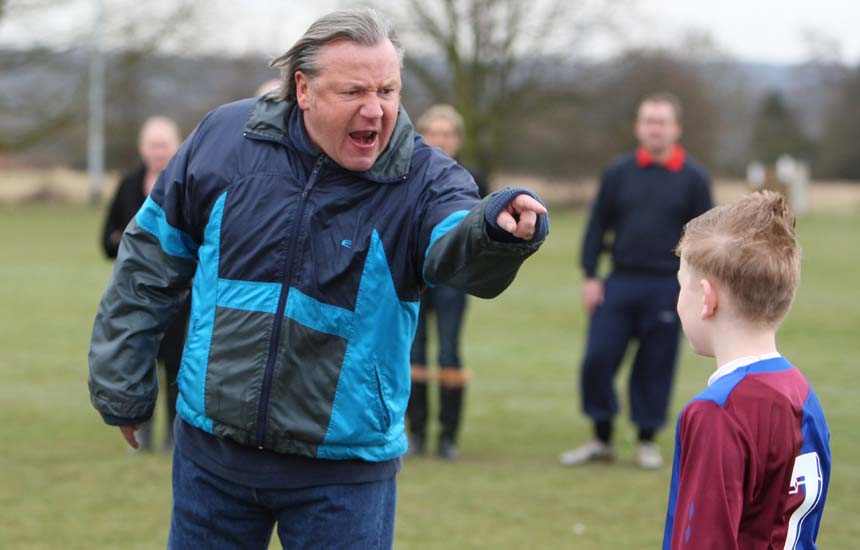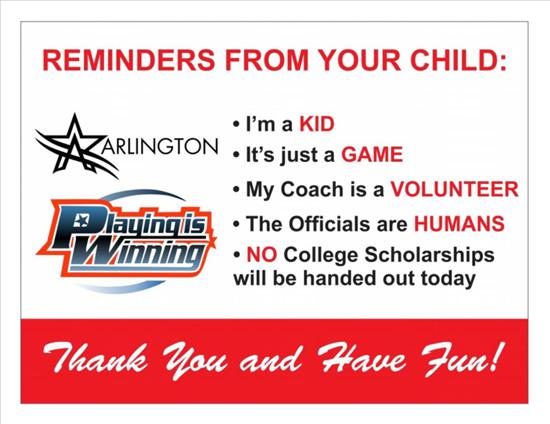
I’ve recently become one of those parents on the sidelines watching their kids play sports. It’s super exciting, but I’ve seen a lot of things I don’t like when it comes to coaching kids.
Things that are going to end kids’ sporting careers before they even get started.
Although my kids are only a couple years into youth sports, I have personally been a coach for over 12 years. So I see things a little bit differently. I look at things through a lens of health, strength and longevity.
I may not know sports-specific skills or the rules of the game, but I do know human performance, the psychology of coaching and age appropriate training loads.
My aim with this article is to give parents a broader perspective on youth sports and some tips on coaching kids.
And my hope is that children can enjoy the game longer without well-meaning parents (and coaches) messing them up!
Things to avoid
Before my criticisms, I have to commend any parent that takes an interest in their child’s sports and recreation. There is enough deadbeat dads out there that couldn’t care less. So I applaud anyone willing to give their time and attention to their kid.
Having said that, here are a few ground rules on things you should avoid:
Don’t embarrass your kid
This one should go without saying, but unfortunately that is not the case.
We’ve all seen those crazy parents who yell at their kid, the coaches, referees and sometimes even other players! They act like children themselves who have no control over their emotions.

(Photo by Football Association The FA via Getty Images)
I get it. It’s exciting watching your kid play. Especially if they’re a standout player on the team or in an individual sport like wrestling. However, if you’re getting thrown off of the field because of your conduct, you need to check yourself.
You’re embarrassing your kid, the team and the coach; and you’re going to sabotage your kids athletic career.
As soon as your child connects their sporting with you being a jackass, they’re not going to want to play. And as soon as they’re old enough to quit the team (or flunk out), they will.
Nobody wants negative attention brought to them, especially not from their parents.
Don’t tell your kid what they’re doing wrong.
This is coaching 101. You coach on what TO do, not on what not to do.
When you tell an athlete what they’re doing wrong, that’s what they focus on. Instead, give them the solution to the problem.
It’s better to have a clear picture in mind on how the skill/technique/strategy is executed correctly.
We all have our own internal dialog that tells us the negative stuff. What we’re doing wrong, how bad we suck, what we’re going to mess up, etc.
A good coach will help an athlete silence that voice in their head, distract it or override it. That doesn’t happen by emphasizing mistakes.
Encourage, never criticize. When you focus on the positive you’ll get positive results.
Don’t put them in a “fixed” mindset
Stanford psychologist Carol Dweck wrote a fabulous book called Growth Mindset in which she identifies 2 basic thought processes that shape our lives.
Fixed mindset and Growth mindset.

A fixed mindset assumes that our talents and abilities are static traits and cannot be changed. For example, a “born musician” has natural talent and therefore anything related to music comes easily to them.
Effort is seen in a negative light in a fixed mindset. The rationale is that if you’re good at something, it should come easily to you. Having to try hard means you’re not good. Therefore if athletes want to identify as being good they will avoid giving their best effort.
A growth mindset assumes that talents and abilities can be improved on. Effort is seen as a positive in a growth mindset; a necessary springboard for getting better. Effort stretches our existing capabilities and as a result we grow.
To avoid putting your child into a fixed mindset, try not to compliment them on what they do good (e.g. “you’re a good ball handler”, “you’re great at defending”, etc.).
Instead, compliment them on their effort (i.e. “you know how to hustle”, “I love how hard you play”, “you gave your best out there”, etc).
Offer them praise when they try, fail and try again harder. This will empower them to tackle challenges head on. Work ethic is one of those life lessons that can be learned uniquely early in sport.
Don’t over train them
There’s a bunch of well-meaning coaches and parents out there who are running their kids into the ground. Unfortunately, these folks are ignorant about age-appropriate training loads and they’re putting too much pressure on kids to perform.
Single sport specialization, year round travel teams and overzealous parents and coaches are causing young athletes to burn out physically and/or mentally.

Consider this: professional athletes have an off-season, pre-season and post-season.
Even in baseball, one of the longest sports seasons, athletes only play for 6 months out of the year.
Why would anyone think a child should play more than an adult professional?
This kind of thinking defies logic.
The belief that “more is better” is the reason injuries are on the rise in youth sports. 60% of Tommy John elbow surgery is now happening to teenagers, and here’s what Dr. Tommy John III (the son of the MLB pitcher who first had the surgery) has to say about it:
“So it’s happening in a population that it wasn’t supposed to occur in,” Tommy III says. “And that’s what my dad is sick about […] it’s bled down to where it’s occurring more in a demographic that should never be talking about having this surgery.”
In the grand scheme of life, sports has a very short window. The probability of competing beyond high school are between 3-12%. The probability of NCAA athletes competing professionally are between 1-10%
I understand parents want to maximize their child’s chances to get into a good school and/or make it to the big leagues, but we need to have realistic expectations.
We need to understand that we most likely do not have the next Lebron James on our hands. And it’s best not to suffer as an adult because we messed ourselves up as kids.
Things To Do
I’ll leave you with a quote from Cal Ripken Jr.
In addition holding the MLB record of most consecutive games ever played (2,632) he wrote a book called Parenting Young Athletes the Ripken Way. There’s probably no one better to give advice on parenting and coaching athletics for a long, prosperous career…
“Ultimately, parents should let kids play the game, it’s their childhood […] It’s all about being a kid, and even if a kid is physically mature, emotionally, they’re still learning and grasping. Again, I’m of the opinion to let them have fun, let them play, let them enjoy the sport, and I go out of my way to alleviate the pressure instead of adding things that can apply the pressure. All those pressures will happen naturally, you don’t have to worry about that.”
Coaching Kids

Like this article? Have questions?
I offer an online coaching service that might be beneficial to you.
We value your privacy and would never spam you
